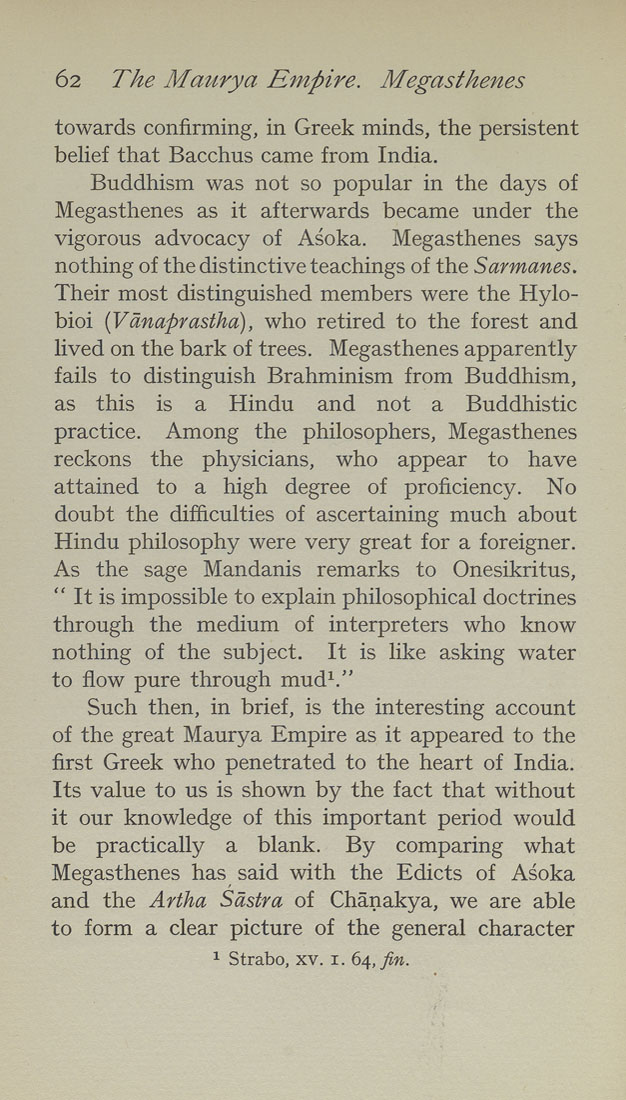62 The Maurya Empire. Megasthenes
towards confirming, in Greek minds, the persistent
belief that Bacchus came from India.
Buddhism was not so popular in the days of
Megasthenes as it afterwards became under the
vigorous advocacy of Asoka. Megasthenes says
nothing of the distinctive teachings of the Sarmanes.
Their most distinguished members were the Hylo-
bioi (Vdnaprastha), who retired to the forest and
lived on the bark of trees. Megasthenes apparently
fails to distinguish Brahminism from Buddhism,
as this is a Hindu and not a Buddhistic
practice. Among the philosophers, Megasthenes
reckons the physicians, who appear to have
attained to a high degree of proficiency. No
doubt the difficulties of ascertaining much about
Hindu philosophy were very great for a foreigner.
As the sage Mandanis remarks to Onesikritus,
" It is impossible to explain philosophical doctrines
through the medium of interpreters who know
nothing of the subject. It is like asking w^ater
to flow pure through mud^."
Such then, in brief, is the interesting account
of the great Maurya Empire as it appeared to the
first Greek who penetrated to the heart of India.
Its value to us is shown by the fact that without
it our knowledge of this important period would
be practically a blank. By comparing what
Megasthenes has said with the Edicts of Asoka
and the Artha Sdstra of Chanakya, we are able
to form a clear picture of the general character
1 Strabo, xv. i. 64, fin.
|








